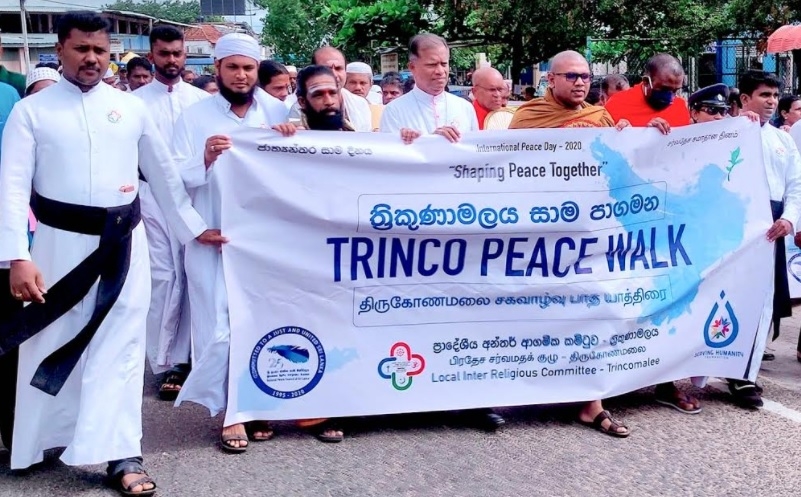An inter faith dialogue was conducted between Buddhist and Muslim religious leaders in Ampara to create a consensus on value of a pluralistic in Sri Lanka under NPC’s Collective Engagement for Religious Coexistence (CERF) project, organized by the Addalaichchenai Local Inter Religious Committee (LIRC). The dialogue was supported by NPC’s local partner, Addalaichchenai Development Society, and the District Secretariat of Ampara.
Thoughts which were derived from the dialogue emphasised the intricacies of ethnic and religious diversity and the importance of awareness raising on cross cultural and religious teachings, rituals and core values. Religious leaders expressed their views on the root causes of religious tension.
“Buddhist monks can visit our Arabic schools and teach them Sinhala and our Moulavis can go to temples to teach Tamil to the monks because language is the biggest constraint that limits our
engagement. In fostering the trust and connection, this dialogue has built a bridge between the two religious communities,” said Moulavi M. M. Kamardeen.
“The dialogue gave us an understanding on the values of Buddhism and Islam. We learnt that the lack of clarity and awareness on religious teachings among the followers and religious leaders hinders religious coexistence. We discussed our differences and similarities both in practical and conceptual terms. Increased cross cultural and religious learning through fostering continuous engagement with students and religious leaders will restore religious coexistence in our communities,” said Ven. M. Damminda Thero.
Also under the CERF project, the International Day of Peace was commemorated by the Addalaichchenai and Trincomalee LIRCs with peace walks to raise awareness on peace and culture
and the importance of individuals in influencing religious cooperation. The walk in Trincomalee town drew 550 people including religious leaders, government officials, police officers, civil society leaders and students from religious institutions, who carried slogans and banners with the messages about the importance of religious cooperation.
Mr. J.S. Arulraj, Divisional Secretary of Trincomalee, said, “It is our collective responsibility and engagement that will enable the creation of a peaceful society, not only our individual contributions.”
Also under the CERF project, Akurana LIRC organized two training workshops on pluralism targeting the Village Community Policing Committees and the youth leaders.
Mr. R. Ashok, a member of the Akurana Village Community Police Committee, said, “As a multi ethnic, multi religious country, Sri Lankas should promote peace. Conducting training programmes to build understanding among the religious groups is important for lasting peace.” Capacity building training programmes on pluralism, gender, conflict transformation and trust
building were conducted for Beruwala, Panduwasnuwara, Weligama and Rakwana LIRC members while awareness raising programmes on rule of law and pluralism were conducted in Beruwala and Negombo.
Meetings with newly appointed parliamentarians to advocate for religious pluralism and a training programme on combatting hate speech for journalists were held in Vavuniya. Negombo, Trincomalee and Weligama LIRCs held their bimonthly meetings to identify problems in their areas and designed interventions to solve them.
These initiatives reached about 1,390 community representatives of state and law enforcement sectors, media, political entities, community youth, religious leaders and civil society organizations.

